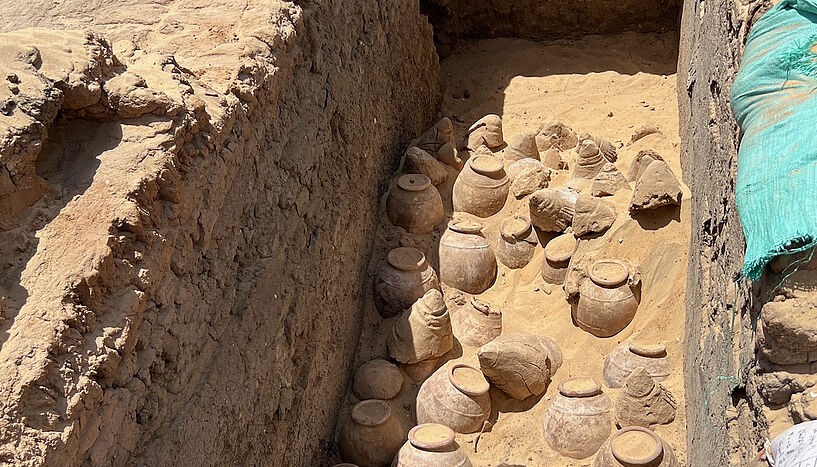
Unearthing ancient wine jars in Queen Meret-Neith's tomb reveals her historic significance, challenging norms in ancient Egypt.
A team of researchers from the University of Vienna uncovered sealed jars of wine dating back 5,000 years in the tomb of Queen Meret-Neith, believed to be the most powerful woman of her era and possibly Egypt's first female pharaoh.
The findings shed new light on ancient Egyptian history, providing a glimpse into the life and times of a remarkable woman who had an extraordinary role in the ancient world.
Unearthing Egypt's First Female Pharaoh
Fox News reports that Queen Meret-Neith's tomb, situated in Abydos, Egypt, was a monumental complex constructed with unbaked mud bricks, clay, and wood.
The researchers, led by archaeology professor Christiana Köhler, were astounded by the excellent preservation of the artifacts, including well-preserved grape seeds, perfectly sealed wine jars, and even footprints in the mud.
Köhler expressed their astonishment at the level of detail they encountered during their excavations.
Ancient Wine Jars Discovered
The most intriguing aspect of this discovery is the sealed wine jars. Some of them remained in their original state, their contents offering a tantalizing glimpse into the winemaking practices of the time.
The residue inside these jars, which includes grape seeds and possibly tartar crystals, is currently undergoing scientific analysis.
Emlyn Dodd, an archaeologist from England's Institute of Classical Studies, notes that this discovery could significantly contribute to our understanding of ancient winemaking, shedding light on the chemical composition and flavor profiles of wines from that era.
Read Also: Ancient Herculanuem Scroll Message Unveiled: Student Used AI to Decipher 1st Vesuvius Challenge
More Interesting Discoveries
Meret-Neith's significance in ancient Egypt is further underscored by inscriptions found within the tomb, which indicate that she held key governmental positions, including the management of the royal treasury.
This has led to speculation that she might have been the first female pharaoh in Egypt, a claim that some experts dispute.
Margaret Maitland, a curator at National Museums Scotland, points out that women's roles in royal successions were limited at the time, but Meret-Neith indeed possessed an unusual level of authority for a woman of her status.
The tomb complex also contains the remains of 41 courtiers and servants, challenging previous assumptions about the nature of royal Egyptian burials. It was once believed that these early Egyptian burials included ritual human sacrifices, but this theory has yet to be proven.
The research is ongoing, and the team is optimistic about unraveling more of the mysteries surrounding Meret-Neith's life and influence in Egypt. Christiana Köhler expressed confidence that the full excavation of the complex would yield even more insights.
This remarkable discovery not only provides a glimpse into the winemaking practices of ancient Egypt but also highlights the historical significance of a powerful woman whose role in shaping the ancient world remains a subject of intrigue and debate.
Stay posted here at Tech Times.
Related Article: 4,000-Year-Old Mysterious Rock Marks Archaeological 'Treasure Map' in France









